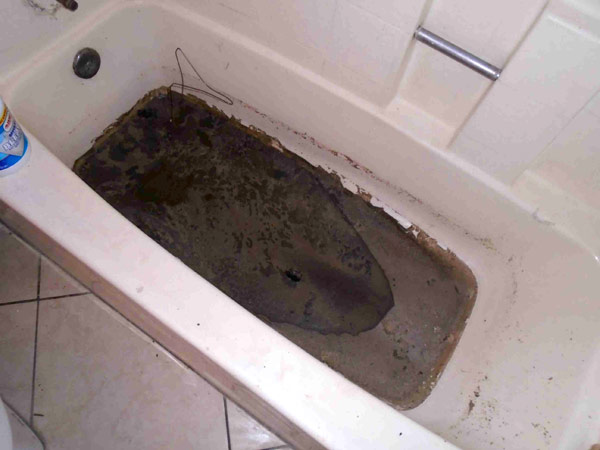Investigating Why Sewage Comes Up Through the Bathtub
Investigating Why Sewage Comes Up Through the Bathtub
Blog Article
Here below you can get more helpful insight all about What to Do if Sewage Starts Coming Up Through Your Bathtub.

Sewage backup in the bathtub can be a distressing and unsanitary trouble for any kind of house owner. Not only is it troublesome, but it additionally poses severe wellness dangers and suggests underlying problems with the plumbing system. Recognizing why sewage is coming up with the tub is critical for taking proper activity to resolve the problem properly.
Intro to the Issue
Typical Reasons for Sewage Backup
Clogs in the Sewer Line
Among the most usual sources of sewage back-up is a clog in the drain line. This can take place because of the buildup of particles, oil, or international items in the pipes, protecting against proper circulation and creating sewage to support into your tub.
Tree Origin Intrusion
Tree origins looking for moisture and nutrients can infiltrate sewage system lines via tiny cracks or joints. Over time, these origins can expand and expand, causing substantial damage to the pipes and causing sewer back-up problems.
Recognizing the Trouble
When sewage draws back up into the tub, it's a clear indication of a trouble with the drainage system. The wastewater that ought to be moving far from your home is rather finding its back into your space, which can lead to significant damages and carcinogen.
Prospective Reasons
Numerous aspects can add to sewer back-up in the tub. From clogs in the sewage system line to problems with the plumbing framework, identifying the root cause is important for discovering a solution.
Aging Infrastructure
Older homes might have dated plumbing systems that are a lot more prone to corrosion, cracks, and deterioration. As pipes age, they end up being much more susceptible to leaks and clogs, enhancing the possibility of sewer backup events.
Heavy Rainfall or Flooding
During durations of heavy rainfall or flooding, the sewer system might end up being overloaded with excess water, causing backups and overflows. This can cause sewer backing up into tubs and various other components inside the home.
Indicators of Sewer Backup
Foul Odors
Undesirable smells rising from drains or components, particularly in the washroom, may suggest sewer backup issues. These smells are frequently strong and persistent, signifying a trouble that needs immediate attention.
Slow Draining Fixtures
Tubs, sinks, and commodes that drain slowly or otherwise whatsoever could be experiencing sewage backup. If numerous fixtures are affected concurrently, it's likely that the concern stems from a common point, such as the major sewage system line.
Gurgling Sounds
Unusual gurgling or bubbling noises originating from drains when water is running somewhere else in your home are a measure of air caught in the plumbing system. This air build-up can arise from sewer back-up and must be checked out immediately.
Health Dangers Related To Sewage Backup
Contamination of Water System
Sewage back-up can contaminate the water system in your home, posing a severe wellness threat to you and your household. Exposure to infected water can cause intestinal issues, skin infections, and various other health problems.
Mold Development
Wetness from sewage back-up can produce perfect problems for mold and mildew growth in your house. Mold spores can worsen breathing troubles and create allergic reactions in delicate people, making timely cleanup essential.
Spread of Disease
Sewer contains dangerous bacteria, viruses, and parasites that can create a range of illness, including hepatitis, cholera, and gastroenteritis. Entering into contact with sewage or infected surfaces places you in jeopardy of infection.
Cleaning Up After Sewage Back-up
Disinfection Procedures
Completely sanitize and disinfect influenced areas after sewage backup to remove unsafe bacteria and protect against mold and mildew development. Use proper cleaning products and safety equipment to make sure risk-free and efficient cleaning.
Repair of Influenced Locations
Fix any type of damage to floor covering, wall surfaces, or fixtures caused by sewer back-up. Depending upon the level of the damages, you may need to change carpets, drywall, or other products to restore your home to its pre-loss problem.
Immediate Actions to Take
Shutting Off Water System
In the event of sewage backup, it's necessary to turn off the water supply to prevent additional contamination and damage. Locate the primary water shutoff valve in your house and closed it off up until the problem can be solved.
Contacting an Expert Plumber
Managing sewer backup is not a do it yourself work. Get in touch with a licensed plumber with experience in taking care of sewage-related problems to examine the circumstance and perform necessary repair services or clean-ups.
Staying Clear Of Contact with Infected Water
Till the sewage back-up is dealt with, stay clear of contact with infected water to prevent the spread of bacteria and pathogens. Put on protective gear if you must remain in the damaged area and clean your hands thoroughly afterward.
Safety nets
Normal Maintenance of Drain Lines
Schedule regular assessments and maintenance of your sewer lines to recognize and attend to potential issues before they intensify right into significant problems. This can consist of cleaning particles, examining for tree origin breach, and repairing any type of broken pipes.
Mounting Bayou Shutoffs
Think about mounting bayou valves in your plumbing system to stop sewer from flowing back right into your home throughout durations of heavy rainfall or flooding. These valves immediately close when water starts backing up, safeguarding your residential or commercial property from contamination.
Proper Disposal of House Waste
Prevent purging anything aside from bathroom tissue and human waste down the bathroom to stop clogs and obstructions in the sewer line. Dispose of grease, oil, and other house chemicals appropriately to minimize the threat of plumbing problems.
Why Is Water Backing Up in My Bathtub When I Flush My Toilet?
What to do about a sewer line clog
First, don’t bother with plunging. No amount of plunging will dislodge the clog in a sewer line. The clog is too far away. Plungers are for clogs in the toilet itself, not the sewer line. Plus, the most likely causes of a sewer clog are:
Tree roots Flushed toys or feminine products Grease buildup Those items don’t move easily. And in the case of tree roots, the roots need to be cut out of the pipe and the pipe will need to be repaired.
You’ll need a closet auger. A closet auger is a type of plumber’s snake with a protective cover to keep from scratching the delicate porcelain toilet. If the clog is further down, you may need to remove the toilet or use one of your cleanouts to get to the clog.
We also recommend doing a video inspection of the drain to ensure that the cause of the clog has been completely removed. Otherwise, you could have the same problem again in a few days or weeks.
https://mspplumbingheatingair.com/blog/why-is-water-backing-up-in-my-bathtub-when-i-flush-my-toilet

Hopefully you liked our topic about What To Do If Sewage Starts Backing Up Into the Shower. Thanks a lot for taking time to read through our blog post. Enjoyed reading our post? Please quickly share it. Help others check it out. Thanks a bunch for being here. Kindly check our website back soon.
Request Service
Report this page